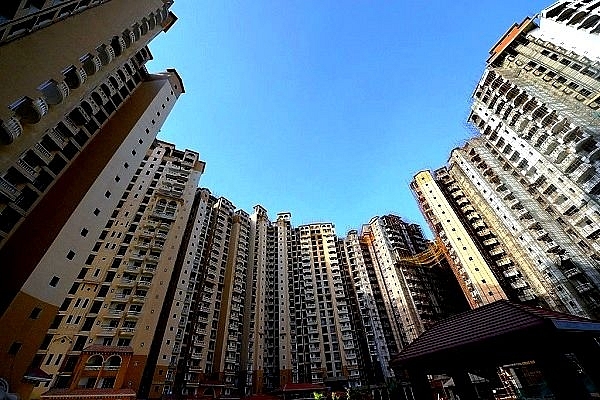News Brief
Model Tenancy Act Approved To Unlock Vacant Houses For Rental Purposes
- The Model Tenancy Act (MTA) will enable institutionalisation of rental housing by gradually shifting it towards the formal market, says Housing and Urban Affairs Minister Hardeep Singh Puri.

Representative Image (Ramesh Pathania/Mint via Getty Images)
Aiming at facilitating vacant houses for rental housing purposes, the Central government has approved the Model Tenancy Act (MTA) on Wednesday (2 June).
The Union Cabinet, chaired by Prime Minister Narendra Modi, has approved the Model Tenancy Act for circulation to all States/Union Territories for adaptation by way of enacting fresh legislation or amending existing rental laws suitably.
The Model Tenancy Act would enable establishing a rent authority to regulate renting of premises and to protect the interests of landlords and tenants. The proposed authority will also provide a speedy adjudication mechanism for the resolution of disputes and matters connected therewith or incidental thereto, according to the Act.
Under the Act, the rent authority, rent court and rent tribunal would fast track resolution of disputes within 60 days, the Housing and Urban Affairs Minister Hardeep Singh Puri said.
According to the government, the Model Tenancy Act will facilitate the unlocking of vacant houses for rental housing purposes.
The Model Tenancy Act aims to create a vibrant, sustainable and inclusive rental housing market in the country. It will enable the creation of adequate rental housing stock for all the income groups, thereby addressing the issue of homelessness.
Besides, the security deposits for residential premises will be two months rent, and for commercial, it will be six months rent, Puri said.
Moreover, the Model Tenancy Act would also help in overhauling the legal framework with respect to rental housing across the country.
The government said the Act would facilitate the creation of adequate rental housing stock for all the income groups, thereby addressing the issue of homelessness.
"The Model Tenancy Act will enable institutionalisation of rental housing by gradually shifting it towards the formal market," the Ministry of Housing and Urban Affairs said.
It is expected to give a fillip to private participation in rental housing as a business model for addressing the huge housing shortage, it added.
It also puts a cap on the amount of security deposit—usually a bone of contention between landlords and tenants—to a maximum of two months of rent in case of residential premises and six months in case of non-residential premises. Currently, this amount differs from one city to another.
For instance, in Delhi, the deposit is usually two-three times the monthly rent, but in Mumbai and Bengaluru, it can be over six times the monthly rent.
Another crucial point where the act has provided a mechanism is vacating the premises. The Model Tenancy Act says that if a landlord has fulfilled all the conditions stated in the rent agreement—giving notice etc.—and the tenant fails to vacate the premises on the expiration of the period of tenancy or termination of tenancy, the landlord is entitled to double the monthly rent for two months and four times after that.
Every landlord or the property manager may enter the premises let out on rent after serving a notice, in writing or through electronic mode, to the tenant at least twenty four hours before the time of entry under the following circumstances, the act states.
It has further described in detail the rights and obligations of both landlord and tenant and has also dealt with many issues which can lead to disputes between the two parties.
It will help overhaul the legal framework with respect to rental housing across the country, which would help spur its overall growth.
The Act is expected to enable the institutionalisation of rental housing by gradually shifting it towards the formal market. It is expected to give a fillip to private participation in rental housing as a business model for addressing the huge housing shortage.
Support Swarajya's 50 Ground Reports Project & Sponsor A Story
Every general election Swarajya does a 50 ground reports project.
Aimed only at serious readers and those who appreciate the nuances of political undercurrents, the project provides a sense of India's electoral landscape. As you know, these reports are produced after considerable investment of travel, time and effort on the ground.
This time too we've kicked off the project in style and have covered over 30 constituencies already. If you're someone who appreciates such work and have enjoyed our coverage please consider sponsoring a ground report for just Rs 2999 to Rs 19,999 - it goes a long way in helping us produce more quality reportage.
You can also back this project by becoming a subscriber for as little as Rs 999 - so do click on this links and choose a plan that suits you and back us.
Click below to contribute.
Latest